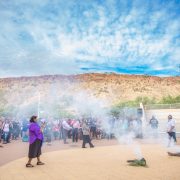MMEx e-Health Clinical Platform
The MMEx platform is an award winning, evidence based and fully shareable web-based electronic health record system. MMEx was developed at UWA’s Centre for Software Practice and delivered to market by ISA Technologies. It provides practitioners with a patient management system that allows care teams to share information and be guided by risk-based decision support and other tools. Initially developed to manage healthcare for Aboriginal people in the Kimberley, MMEx has since been used to support the health care of large indigenous populations throughout Australia as well as highly specialised care in urban settings. MMEx has been used to collect research data for projects looking at chronic disease management practices, approaches to telehealth, and sexually transmitted infections.





